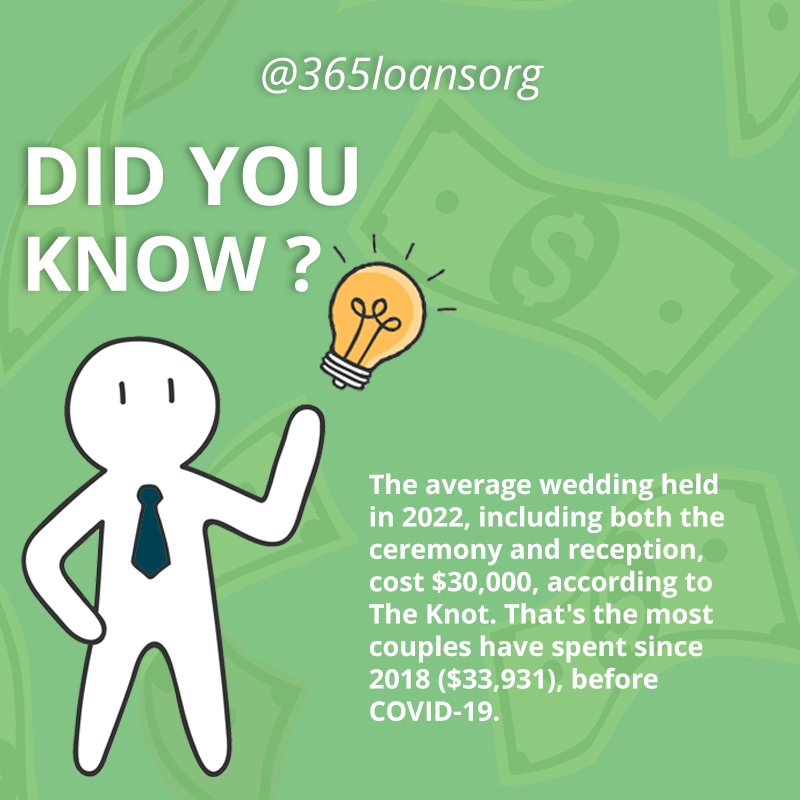Planning a wedding is an exciting time in one’s life, but it often comes with the challenge of managing finances. The dream of a perfect wedding can quickly become overwhelming if the budget isn’t managed effectively. However, with the right strategies and a clear plan, it is possible to save for your dream wedding quickly and efficiently. In this article, we will explore various approaches to help you navigate the financial aspect of wedding planning, ensuring that you can enjoy your special day without unnecessary financial stress.
Assessing Your Wedding Budget
The first step in saving for your wedding is to assess your wedding budget realistically. Determine the overall amount you are willing to spend on your wedding and allocate it to different expenses. Prioritize the elements of your wedding that are most important to you, such as the venue, catering, or photography. By identifying these key expenses, you can allocate a larger portion of your budget to them while finding areas where you can potentially reduce costs.
Trimming unnecessary costs is also crucial in saving for your wedding. Evaluate each aspect of your wedding plans and consider where you can make adjustments without compromising your vision. For example, you might opt for a smaller guest list, choose a more affordable venue, or find creative alternatives for decorations and flowers. By critically examining each expense, you can ensure that your budget aligns with your financial capabilities while still creating a memorable wedding experience.

Creating a Savings Plan
Once you have established your wedding budget, the next step is to create a well-defined savings plan. Here’s how to create an effective savings plan:
- Define a Timeline: Determine the timeline for your wedding by considering your desired wedding date. Calculate the number of months or years you have until then. This will provide a clear timeframe for achieving your savings goals.
- Set a Savings Goal: Based on your overall wedding budget, time available, and expenses, set a specific savings goal. Break down the total amount into monthly or weekly targets. Having a concrete savings goal helps you stay motivated and focused.
- Identify Additional Income Sources: If your disposable income falls short of your savings goal, explore additional income sources such as side jobs, freelance work, or part-time employment. Increasing your earning potential accelerates your savings.
- Establish a Separate Wedding Savings Account: Open a dedicated savings account for your wedding funds. Keeping your savings separate helps track progress and prevents spending the money on other expenses. Consider a high-yield savings account for better interest rates.
- Monitor and Adjust: Regularly track your savings progress against monthly targets. Adjust your savings plan if you’re falling behind or exceeding goals. Be flexible and adapt to changing circumstances or unexpected expenses.
- Celebrate Milestones: Acknowledge and celebrate milestones as you achieve certain savings goals. It boosts motivation and excitement about reaching your ultimate goal.
Cutting Expenses and Smart Spending
To save for your wedding more quickly, it’s essential to analyze your current spending habits and identify areas where you can cut back. Take a close look at your monthly expenses and determine which ones can be reduced or eliminated. Consider subscriptions, dining out, entertainment expenses, and impulse purchases. By adopting a more frugal lifestyle and making conscious choices about your spending, you can free up more money to put towards your wedding savings.
In addition to cutting expenses, explore ways to spend smartly. Compare prices and negotiate with wedding vendors to secure better deals. Many vendors are open to negotiation, especially if you are flexible with dates or willing to bundle services. By being proactive and assertive, you can make significant savings on various aspects of your wedding, including venue rentals, catering, and photography.
Seeking Financial Assistance
In some cases, seeking financial assistance can help ease the burden of wedding expenses. Approach family members who may be willing to contribute financially as a wedding gift. Communicate openly about your plans and discuss how they can be involved in making your dream wedding a reality.
Exploring wedding loans or credit options is another possibility. Research financial institutions that offer wedding-specific loans or consider using credit wisely to cover some expenses. It’s important to carefully evaluate the terms and interest rates before making any decisions. Only borrow what you can comfortably repay within a reasonable time frame.
Furthermore, look for wedding grants or scholarships offered by local organizations or foundations. Some programs provide financial assistance to couples based on certain criteria or unique circumstances. Conduct thorough research and apply for any available opportunities that align with your situation.

Alternative Wedding Options
Planning a wedding doesn’t have to follow traditional and expensive norms. If saving for your dream wedding seems challenging within your current financial circumstances, consider these alternative options to save money and create a unique experience:
- Intimate or Micro Weddings: Scale down your guest list to include only close family and friends. Choose a smaller venue and allocate your budget to details that matter most to you.
- Destination Weddings: Opt for a destination that offers package deals including accommodations, catering, and a wedding planner. Research costs and ensure it fits within your budget.
- DIY and Creative Solutions: Add a personalized touch by creating your own invitations, centerpieces, or wedding favors. Explore affordable venues and utilize the skills of friends and family members.
- Off-Season or Weekday Weddings: Host your wedding during the off-season or on a weekday to take advantage of discounted rates from venues and vendors.
- Non-Traditional Venues: Look for unique venues such as art galleries, botanical gardens, or a family member’s backyard. Non-traditional venues often have lower rental fees.
- Digital Invitations and Technology: Use digital invitations and create a wedding website for RSVPs. Utilize online planning tools and apps to streamline the process.
- Brunch or Afternoon Receptions: Consider hosting a brunch or afternoon reception, as they tend to be more cost-effective than evening events.
Conclusion
Planning a wedding is an exciting journey, but it can be financially demanding. By following the strategies outlined in this article, you can save for your dream wedding more quickly and efficiently. Remember to assess your budget, create a savings plan, cut expenses, and utilize various saving strategies. Explore alternative option,consider seeking financial assistance when necessary and remember to prioritize what truly matters to you and your partner. With careful planning, you can enjoy your special day without the burden of excessive debt or financial stress. Start implementing these techniques today, and embark on your wedding planning adventure with confidence and financial security.







